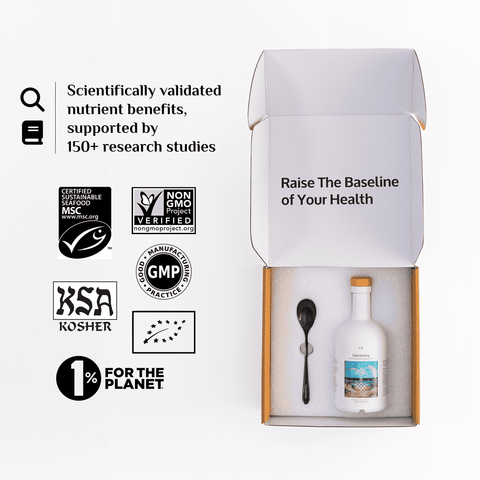Quality sleep is essential for overall health, yet many struggle with getting enough rest. Recent research highlights a surprising ally in the quest for better sleep: omega-3 fatty acids. Found in fatty fish, cod liver oil, and certain plant-based sources, omega-3s play a crucial role in brain health, mood regulation, and, as it turns out, sleep quality.
 How Omega-3s Influence Sleep
How Omega-3s Influence Sleep
Omega-3 fatty acids, particularly DHA (docosahexaenoic acid), are vital for maintaining healthy brain function. One way omega-3s affect sleep is by regulating the production of melatonin, the hormone responsible for controlling your sleep-wake cycle. A study published in Nutrients found that higher DHA levels were associated with improved melatonin production and better sleep quality (source: PubMed, 2022).
Reduced Risk of Sleep Disorders
Omega-3 deficiency has been linked to various sleep disturbances, including insomnia and obstructive sleep apnea. A 2014 study from the Journal of Sleep Research discovered that children with higher blood levels of omega-3 slept nearly an hour longer on average and experienced fewer nighttime awakenings (source). While the study focused on children, similar results have been observed in adults, suggesting a widespread benefit.
Omega-3 and Stress-Induced Sleeplessness
Stress is a common factor that disrupts sleep patterns, and omega-3s can help by reducing stress-induced inflammation in the brain. According to a study in Molecular Psychiatry, omega-3 supplementation significantly lowered cortisol levels, the hormone associated with stress, which often interferes with sleep (source).
 Overall Improved Sleep Quality
Overall Improved Sleep Quality
As we age, sleep quality often declines. Omega-3s may help combat this issue by supporting cognitive health and reducing inflammation. A systematic review published in Principles and Practice of Clinical Research Journal found that omega-3 supplementation improved sleep quality in 74% of the included clinical research (source).
Best Sources of Omega-3s for Better Sleep
To experience the sleep-enhancing benefits of omega-3, focus on incorporating the following into your diet:
- Fatty Fish: Salmon, mackerel, and sardines are rich in DHA and EPA.
- Cod Liver Oil: An excellent source of both omega-3s and vitamin D, which also supports sleep.
- Plant-Based Sources: Flaxseeds, chia seeds, and walnuts provide ALA (alpha-linolenic acid), a precursor to DHA and EPA.
For optimal results, aim for 250–500 mg of combined DHA and EPA daily, as recommended by health experts.
Can Omega-3 Supplements Help?
If dietary sources are insufficient, omega-3 supplements can be an effective alternative. Look for high-quality options, such as our Harmony™ Wild Alaskan Cod Liver Oil, which provides both omega-3s and additional nutrients like vitamin D.
By supporting brain health, regulating melatonin, and reducing stress, omega-3 fatty acids offer a natural way to improve sleep quality. Whether through diet or supplements, adding omega-3 to your routine could help you enjoy deeper, more restful sleep.









